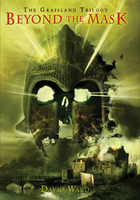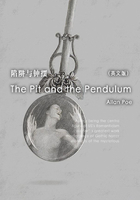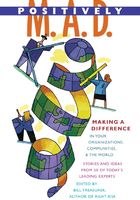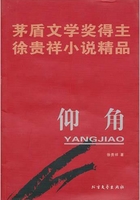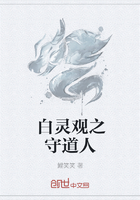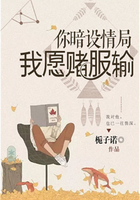Calculating his situation and his prospects, Cooper concluded that he had started on the slippery slope to total impotence-sexual, economic and psychic. He was thirty-eight years old and he had hit a very bad patch indeed. Maybe he could ride it out. Maybe not.
He joined the Bethesda Health Club, a gym much older and less glitzy than the other ones opening around the city-but because of that, the initiation fee and monthly dues were a lot less. But the best thing about Bethesda was that his apartment building was just a quick jog away.
He was determined to exclude everything out of his life, and focus all of his energy on his body. To do this efficiently and completely, he forced himself to adopt a mental condition that required him to accept the absence of time. The present was the only zone Cooper recognized. The present did not move. The present was not relentless. In the present, there was no ambition, no hopes, no dreams, and therefore no desire. There was only the body: tissue, muscles, bones, cells, and everything else that made up its structure. Time didn't move, but his body did. Chemicals reacted. Calories burned. Muscles hardened. He was relentless in his single minded and obsessive exertion. He reviewed himself in the mirror, willing his muscles to ripple and undulate. It was the only thing he could command. He was determined to exercise himself into oblivion.
After his workout, he would take a sauna and shower, get dressed, then order a melted Swiss cheese sandwich and a Coke. As he ate at the counter, he would watch the squash games taking place behind thick plate glass windows.
Parrish would watch the squash games too, indifferent and without enthusiasm. Their taciturn attitude was especially bizarre because Parrish ate at the counter at the same time. Parrish would order a bacon, lettuce and tomato sandwich on toast without mayo, and a cup of coffee.
After they observed a couple of games between the professional players, the after-work crowd would arrive and signal Cooper's departure. He had grown to detest crowds, especially their small talk and laughter. It reminded him of his former job, his marriage, his past. Parrish would stay on and watch the games, his eyes glazed with disinterest. As hard as Cooper tried to repress his speculation about Parrish, he found his mind drifting towards curiosity without his own consent.
Parrish's routine mirrored Cooper's. Often they were the only ones in the sauna and the communal shower, but they rarely looked at each other. Actually, Cooper did sneak glances at Parrish's naked body, but only to inspect the man's musculature, in comparison to his own. Parrish was a fine specimen, with excellent definition, a slim waist, well-delineated pectorals, muscular calves, and rippling abdominals. With a sense of embarrassment, Cooper also observed that Parrish's genitals were well formed and without blemish. He wondered if Parrish had ever inspected him in such detail.
***
Cooper thought about Parrish as he walked toward his tiny efficiency apartment on Bradley Boulevard, about three miles from the club. What is Parrish's life like? Is he in the same no-man's land as me? Had he also lost control over his own fate? But by the time he let himself into his apartment building, he forced himself to dismiss any thought of Parrish.
The building was a mid-rise made of red brick. It was old, but well-maintained. He had furnished it sparsely with cast-off furniture that he had bought at the Salvation Army, including a queen size bed, a dresser, a couch, an upholstered chair, a Formica table, and two chrome chairs. Cooper had no intention of ever inviting anyone inside.
He did not own a television set and he no longer subscribed to the Washington Post. Once he had been a news junkie, but what happened in the world no longer mattered to him. Politics, wars, scandals, sports, and the stock market were of no consequence to him. News meant confronting the reality of the past and the future. It meant movement and potential. It was not part of the present, which was static and immobile.
Every two weeks, he went to Safeway and stocked up on fourteen Healthy Choice dinners, dividing them evenly between meal categories. He also bought a box of plastic eating utensils and a box of napkins, and carefully rolled fourteen sets, which he stowed neatly in the top drawer of his kitchen cabinet. In the small freezer compartment of his refrigerator he stacked the Healthy Choice dinners, one of which he microwaved every evening. He ate alone without relish, merely out of the necessity to provide nourishment.
He stopped seeing so-called friends and acquaintances, many of them former colleagues at the now defunct advertising agency. Because he was an only child, he had learned how to handle aloneness. He had begun to avoid the people from his old life, purge them from his memory. In his present mindset, living in the now, he did not miss the past. It had not been kind to him.
Cooper had been an English major in college, and about the only thing he had kept from his college years were the novels he had loved as a student, mostly cheap editions of Modern Library. Once he had entertained the idea of becoming a writer, but he had given that up on the grounds that he did not have the discipline, nor the fire in his belly to write extended works of the imagination like the greats. Cooper owned about two hundred volumes, mostly English novels and European works in translation, including a beat-up edition of the entire set of Balzac's The Human Comedy, which he had purchased for thirty dollars at an auction in Georgetown. The only Balzacs he had ever read from the set were Eugénie Grandet and Le Père Goriot, and he contemplated reading the entire fifty-five volumes, one after the other, when he had finished reading every other book in his library.
In the six months since he had given up his job search, Cooper had re-read completely, Proust's Remembrance of Things Past, Tolstoy's War and Peace, Dostoyevsky's Crime and Punishment, Gogol's Dead Souls, and Dickens' Martin Chuzzlewit. His favorite novel was Stendahl's The Red and the Black, which he had also re-read many times over the years. Once, he had been focused and ambitious like Julien Sorel, the protagonist of The Red and the Black. Now that his life had come to nothing, he finally understood what it meant to fail. He felt that he had reached the heart of some truth, that it was safer to live in someone else's imagination, rather than his own life. Cooper had no bookcases in his apartment and his books were stacked against a wall, like brickwork. The stacks were all alphabetized from the top down, reaching his eye level in a series of high columns buttressed against the wall.
Once a week, he ventured outside the orbit of his routine to appear at the unemployment office and obtain his unemployment check. He could count on at least another six months of payments. It was the only thought that ever entered his mind about the future.
***
The Bethesda Health Club wasn't exactly state of the art. It had a weight room with a variety of machines, a small basketball court, and a half-dozen squash courts. At ten in the morning when Cooper began his workout, most of the members in the weight room were women in their mid-forties with iPods, puffing hard to keep up, burning fat.
Sometimes, the women would look Cooper's way, but he would barely acknowledge them. Three seemed regulars. There was the stocky Filipino woman named Anni Corazon, with ripcord muscles. She seemed more interested in maintaining her body rather than losing weight. Her level of concentration was awesome as she would do countless reps with weights reaching loads that appeared difficult for someone of her stature to lift. Her schedule was erratic, at times arriving mid-morning and leaving later than others, but other times coming in at 8:00 am, and leaving before lunch.
Despite their skimpy outfits, women wearing sports bras and tights that reached up to the concavity of their buttocks, they did not engage Cooper's interest. The atmosphere was narcissistic. Sweaty participants eyed themselves in the mirrored walls, especially the chubbier members, who hoped their unwanted lumps would disappear when they rolled off their tights.
One of the regulars was a middle-aged black man with a bald head, and large well-defined muscles that showed off years of pumping iron. He was always at the end of his sets when Cooper arrived, sweating profusely through his gray sleeveless jersey, which had Melnechuck stitched across the back. On one of his arms was tattooed the man's name in black.
There was something frightening and ferocious in Melnechuck's demeanor. Confronted with those shark-like eyes and an expressionless yet ravaged face, it struck Cooper that this was not the kind of man one wanted to piss off. Melnechuck didn't pay much attention to Cooper, as he was always concentrating on his own routine.
Only one of the women didn't have an iPod. She was an attractive blonde, with her hair up in a ponytail, which bounced while she worked the step machine. At times, when Cooper caught her looking his way, he felt obliged out of politeness to acknowledge her, giving her a thin smile, hoping it would keep her at a distance. Out of everyone there, the blonde seemed the most observant, and although intent on her exercises, Cooper felt her periodically inspecting him as he crossed her field of vision. She, too, appeared on a daily basis, did her sets with the same religious fervor as the others, and disappeared in early afternoon. It was not as if Cooper deliberately kept track of these coming and goings, but anything that diverged from the usual intruded on his consciousness. Like furniture being rearranged.
Occasionally, the Filipino woman would head for the exit at about the same time Cooper would leave to walk back to his apartment. The parking lot for members was located next to the club, and the woman would come out of the driveway in a little yellow Honda, dented and badly in need of a paint job. Cooper sold his car when he had given up on his job search. Getting rid of it had eliminated yet another burden, one less possession that could inhibit control over his life. For his sorties to the unemployment office, he would ride the subway.
Periodically one or two men would appear in late morning, and after a sales pitch by Blake, would attempt to keep to a workout regimen for a few days. Most faltered and quit. One man, however, aristocratic with a wide face, heavy neck and jowls appeared to have somewhat latched on to the discipline, and would show up for a week straight, before he would disappear again for a long period of time. Blake was always solicitous of him, giving him lots of extra attention, as he had a large paunch, and struggled and sweated mightily through his workout. Blake called him "Doctor."
"Not that way, Doctor. This way," Blake would illustrate, grabbing the handles of a machine. The Doctor would dutifully obey. When he spoke, Cooper noted he had a German accent.
With the exception of an occasional grunt of acknowledgment to Cooper and Parrish, the Doctor saved his concentration for the machines. After about an hour he'd stop, and by the time Cooper got to the shower, the Doctor would be long gone.
In an effort to appear normal and keep himself inconspicuous, Cooper forced himself to engage in occasional small talk with the gray haired woman who worked behind the lunch counter. They spoke mostly about the weather. Except for his life in the fictional world of classic stories, he had little other frame of reference for casual talk.
Parrish sat stoic and silent at the other end of the counter, apparently never listening to anything but his own thoughts. Cooper marked him as a confirmed loner, and ate his own usual melted Swiss cheese sandwich and Coke in silence as well. Parrish ate his sandwich and watched the squash game, his face expressionless.
Cooper and Parrish might never have conversed if the club had not raised its monthly fee by ten dollars. It was Parrish who spoke first. The sound of his voice directed at Cooper, although soft, had the power of a cannonade.
"They raise yours, too?" Parrish asked.
"By twelve," Cooper responded.
"Me too."
"Another squeeze on the old unemployment check." Cooper shrugged.
"Yeah."
Cooper wondered if his response meant that Parrish was also on unemployment.
"I was at Merrill and Anthony," Cooper said.
"I know." His reply triggered a tiny outburst in Cooper. Why hadn't Parrish ever mentioned that?
"Cooper, right?"
He even remembers my name, Cooper thought angrily.
"I'm Parrish. Mike Parrish."
"I know," Cooper said, giving Parrish back in kind, although his memory of Parrish was dim.
"Slim pickings out there, so here we are," Parrish said, offering the barest hint of a smile. His response cooled Cooper's anger.
So there it is, Cooper thought, proud of his deduction.
"Merrill and Anthony folded," Cooper said, knowing he was stating the obvious.
"What a bitch."
The woman behind the counter looked surprised by the exchange, having never seen them acknowledge each other before.
It was hard for Cooper to tell what the next remark was supposed to be, although he knew it had to be some sort of probing question. Cooper decided to skip it, and both men sunk back into silence. Soon after, Cooper left. He waved good-bye, Parrish barely grunting in acknowledgement.
They did not speak again until the next day, when both men were sprawled naked in the sauna, the heat opening their pores.
"Feels good," remarked Cooper.
"Yeah."
There was a long gap of silence. Then Parrish spoke again.
"You can really make a life out of this," he said, slapping his hard ripped stomach.
"Seems so," Cooper said, glancing at Parrish, noting that the dog tag around his neck was not engraved.
"As a kid I never gave a shit. Smoked, drank, ate garbage. The only weight I ever lifted was a beer can." Parrish shook his head.
"Me too," Cooper lied.
"I'm really into all this," Parrish murmured.
"I don't know what I'd do without it," Cooper replied.
"Beats working."
"Yeah."
Parrish leaned back. "Pick up my check at the unemployment office every week. If that runs out, I might be able to scratch together enough money to carry me. I don't like change, and I don't like authority-for example, the twelve bucks they scored on us." His speech was clipped and hard. He avoided eye contact when he talked, which gave Cooper a chance to study his face unabashedly. He had a hawk-like look, a bony face, curved nose, high cheekbones, deep-set eyes, slightly receding brown hair. They were about the same height and weight, and Cooper figured him around his own age. They were similar-not a mirror image, but close.
"You can control your body, but controlling your own destiny… that's a lot harder," Cooper said.
"Depends," Parrish said. He got off the bench, took a scoop of water from the bucket beside the coals, poured it over his head, then took another and poured it over the rocks. A cloud of steam hissed and rose, filling the wood paneled room.
"The trick is to not make yourself a victim," Parrish said, hopping up to the top bench and stretching his long body along its length. He put his arms under his head and the dog tag slid to the bench seat. "Carve out your place. Keep your head down and stay out of the line of fire."
Cooper held his silence and waited, sensing that Parrish was on the verge of saying more. But Parrish remained silent. Cooper felt a bit put out; he had hoped for some sort of revelation.
He felt an odd kinship with this man, a type of camaraderie, which took him by surprise. They had spent every day, seven days a week for the last six months side by side-and at times, like now, balls ass naked. Proximity like that, Cooper supposed, counted for some type of male bonding, an experience that had always eluded him.
Cooper would not go so far as to attribute fate in their coming together, like the odd victims of the bridge collapse in Thornton Wilder's The Bridge of San Luis Rey, but he felt that the coincidences-the similarities between them-could not be ignored. Cooper tried to brush away the idea as false profundity. It was nothing more than pure coincidence.
"I was married for seven years," Cooper found himself confiding in Parrish, a week later in the sauna. "My wife fell in love with another man and gave me the boot."
"You'd never find me in that deal, brother," Parrish said.
Brother?
"I lost my mother, my wife, and my job, all in one month," Cooper continued, unable to cease the flood of revelation.
"Shit," Parrish grumbled. His brown eyes showed his sympathy. "I never knew my mother, and I've never had a wife. Other than freelancing, I haven't had a real job for nearly twenty years. Try to match that, brother."
There it is again: brother.
"Were you an orphan?" It was the first question that Cooper had posed to him.
"Yup."
Cooper waited, expecting more. Nothing came.
"Were you adopted?"
"Never officially."
Had he spent his entire childhood in an orphanage? Had he lived in foster homes? Who had raised him? Who had guided him through life?
"Actually, you wouldn't believe it." Parrish said, emitting a sound that was probably meant to pass for a chuckle.
"Try me." Cooper responded. By now, his body was steaming in the intense heat, but he was too curious to leave.
"I was stolen," Parrish said.
"Stolen?"
"Something like that," Parrish continued. "Some lady stole me from the hospital."
"And raised you?"
"No. Just stole me. They said she was off the wall. Kept me for about six months, then they found her and put her in a nut house."
"And what happened to you?"
"It's a long story," Parrish said, getting up and stretching. Cooper followed him out of the sauna and into the showers. The place was empty. After the shower, they toweled themselves off and shaved side by side as they had done for the past five months. Cooper waited for Parish to finish his story. He didn't. Parrish was dressed and out the door before Cooper had fully dried his hair.
Cooper found him sitting at his usual place at the lunch counter already biting into his BLT. Cooper hesitated, wanting to ask Parrish's permission to sit next to him. He decided against it. He went to his usual seat and waited for the woman to take his order.
In not asking Parrish to sit next to him, Cooper realized that his insistence on repetition was compulsive; same routine, same time, same place, same seat, same food, everything unchanging.
Cooper knew that psychiatrists would identify such behavior as obsessive-compulsive. But labeling it that way seemed too pat an explanation, too harsh and forbidding. Cooper saw his conduct as safe, comfortable and familiar, not a disorder. It was anchoring, and held him securely in his orbit. He was certain that Parrish's behavior served a similar function.
That day Cooper decided that he would not intrude on Parrish's privacy. He could wait. And yet it was impossible to dismiss Parrish from his mind.
A stolen baby? Brother?
Such thoughts disturbed his concentration while reading. He was just getting into Thomas Mann's The Magic Mountain, but the book about Hans Castorp's life paled in comparison to Mike Parrish.
He couldn't wait until he saw Parrish again.


